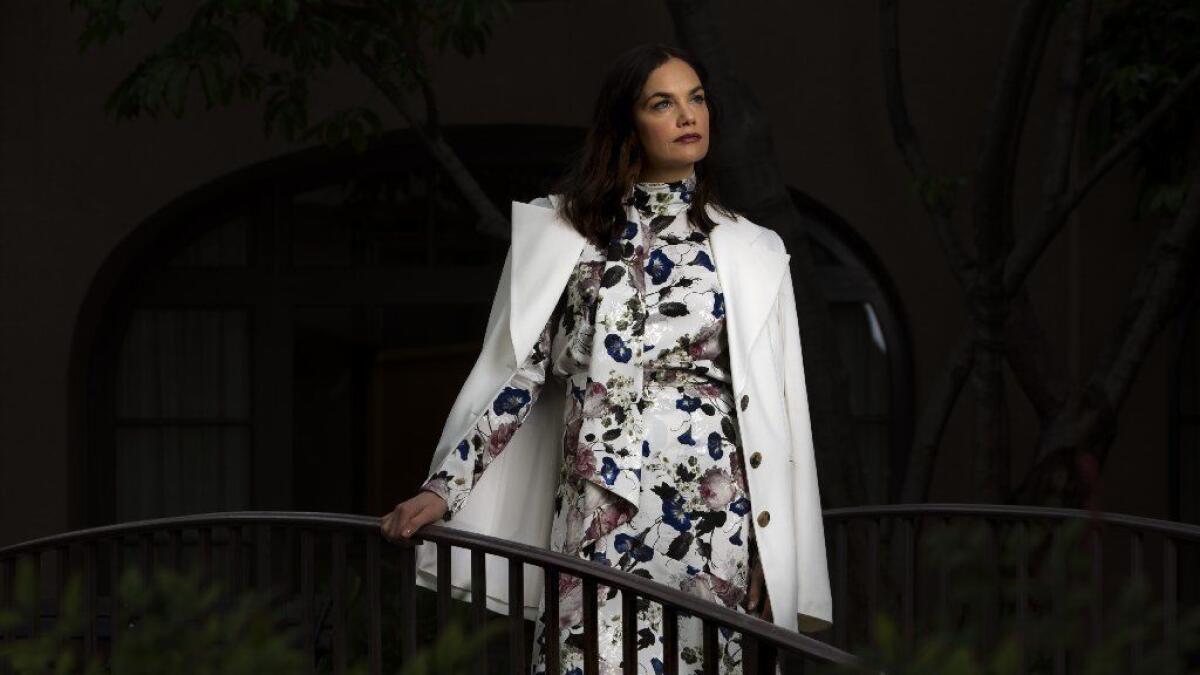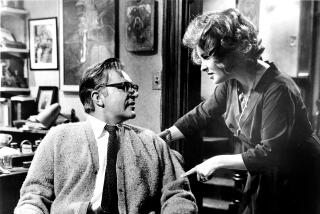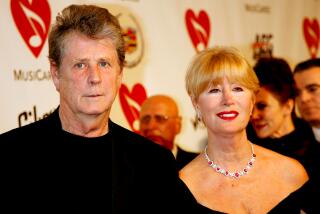Q&A: Ruth Wilson relives her grandmother’s shocking discovery for Masterpiece

Reporting from New York — American audiences know Ruth Wilson through her ongoing role on TV shows like “Luther” and “The Affair,” but her latest project, Masterpiece’s “Mrs. Wilson,” sheds a new light on the 37-year-old actress. In it, she plays her own paternal grandmother, who in the 1940s discovered after her husband’s death that he had not only been a British spy but also a bigamist.
The day after receiving her second Tony nomination, Wilson spoke with The Envelope about family ties — and how playing Alison Wilson taught her about who she was.
Is it true that “King Lear” is your first-ever Shakespeare play?
Yes. I had to stop avoiding it.
So start out small and easy, right?
Right, start with the easiest one. None are easy, but “Lear” is particularly hard. Also, I’ve never sung before onstage. Lots of things I was really freaking out about.
Did you entertain thoughts of being a singer once?
Well, I’d watch “Top of the Pops” on Friday nights and of course loved the idea of singing in front of a mirror. But my family is renowned for being bad singers.
Speaking of families: “Mrs. Wilson” is all about your own. When did you learn the family secret?
My grandfather died when my dad was 18, and he was never talked about. There were no photos of him. When I was about 17, my grandmother gave her sons [including Wilson’s father, Nigel] a memoir, where she detailed meeting Alec [and then] finding out about his betrayal. They shared it with us a few months later. Then she died when I was about 21, and that enabled us to talk more about it. It was almost once my grandmother had left that we could fully talk about it, and delve into the truth.
Nobody talked about it before then?
We’re British. And she was a very quiet, shy, introverted woman.
So do you understand him and your grandmother better?
We still don’t know who my grandfather really was. He’s still a man of mystery. We don’t have any justifications, any written personal diary entries — anything. The emotional part was in my grandmother’s memoir, which we’re having published this year.
Has no one really asked you about him in previous interviews, the ones you did before “Mrs. Wilson”?
He wrote books, but back in the 1920s and ’30s. They were well received at the time, but neither of those publishing houses have records. One was destroyed in a fire. We as a family have his books, but it’s sort of like he’s been wiped from history. I’m a private person, generally — so to put this on screen is bizarre. But anytime I told this story to anyone, they were like, “You have to make a drama out of this.”
Why now?
Things come together at the right time. I’ve been talking about it for years. But there was an energy to get it done because her oldest son, Dennis — my uncle — he’s 97. He wanted it done before he popped off. So there was this pressure from my family.
Do you feel closer to your grandmother now that you’ve walked in her shoes, in a sense?
Definitely. We put people in our families on a sort of pedestal, and we don’t know what their lives are like. They’ve all had extraordinary lives, even if they feel quite ordinary. And when I discovered all these new family members, it made sense of me a lot more — because a lot of them were actors and writers. That’s where my creative streak came from.
Has exploring this story so publicly changed you as a person?
The memoir has had influences on my choices — subconsciously and unconsciously. She died before I went into acting, but my first big job was “Jane Eyre,” and I remember thinking her story is like that. She was a quiet, introverted woman — but also full of emotion and passion and sexuality, all trapped inside. I think I understood Jane Eyre through my grandmother. It’s made me realize that someone can be a duality of a person — you can be one way on the inside and a complete other way on the outside. We’re all made up of those things. It’s changed my life.
More to Read
From the Oscars to the Emmys.
Get the Envelope newsletter for exclusive awards season coverage, behind-the-scenes stories from the Envelope podcast and columnist Glenn Whipp’s must-read analysis.
You may occasionally receive promotional content from the Los Angeles Times.








